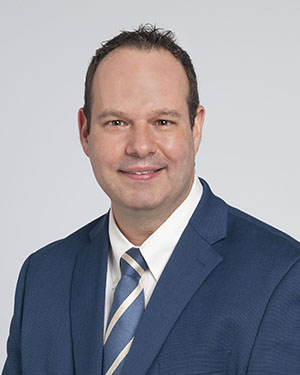Research News
01/15/2025
How science as a team sport shaped this postdoc’s award-winning discovery
Dr. Anu Aggarwal shares how mentorship and collaboration supported her research into a non-odorant drug to treat thrombosis.

The American Heart Association’s Elaine W. Raines Early Career Award each year recognizes a high-performing research scientist in the arteriosclerosis, thrombosis and vascular biology field. This year the award went to Cleveland Clinic’s Anu Aggarwal, PhD.
Dr. Aggarwal is a postdoctoral fellow in the lab of Scott Cameron, MD, PhD. Her submission focused on her work targeting olfactory receptors to prevent blood clots that can cause catastrophic events like heart attack and stroke. Her research outlined a strategy using olfactory receptors as targets unreachable by current drugs, limiting platelet reactivity and preventing blood clotting. Dr. Aggarwal presented her work and received her award at this year’s AHA Scientific Sessions conference held in Chicago.
Dr. Cameron is a cardiologist and a researcher. Since Dr. Aggarwal joined his lab in 2020, she has studied the molecular mechanisms behind platelet activation, and how new findings can translate to patient care. Dr. Aggarwal attributes her success in translational research to Dr. Cameron's mentorship and a team approach to science, whether it’s exchanging ideas or sharing resources.
“I’m always having conversations with other postdocs and research fellows about our respective work,” Dr. Aggarwal says. “I walk away having expanded my own scientific perspective and bring those insights back to the lab.”
In addition to tapping into the expertise of core services including high-throughput sequencing platforms, imaging systems and bioinformatics support, Dr. Aggarwal also collaborates with Shaun Stauffer, PhD and his team from the Center for Therapeutics Discovery to help with synthesizing and refining the structure of chemicals for her translational work.
Mentorship was critical to Dr. Aggarwal’s journey; she says Dr. Cameron has been an “inspiration” for her future leadership style.
“His consistent motivation for us to think outside the box and push beyond traditional boundaries really helped me to grow,” Dr. Aggarwal says. “He always prioritizes his trainee’s interest above all else.”
She also appreciates his encouragement for open dialogue and troubleshooting around experiments and scientific curiosity.
“One of the greatest joys for a mentor is to see your mentees succeed,” Dr. Cameron says. “This personally means more to me than publishing research or winning a grant. I can’t think of anyone who deserves this more than Dr. Aggarwal.”
Dr. Cameron says mentorship means putting in the extra effort to foster new talent – even when you are in “survival mode” in the lab.
“While it can be easy to use the gifts and talents of highly trained fellows like Dr. Aggarwal without further thought, we must stop and ask ourselves why we’ve chosen to lead a lab,” he says. “Our role is ensuring our fellows are prepared for a bright future, investing in the future of scientific research.”
When asked what helped her when first starting out in the lab, Dr. Aggarwal advised:
Be Curious and Ask Questions: Don’t hesitate to ask questions, whether it’s about protocols, experiments or data interpretation. Learning comes from curiosity, and everyone starts somewhere.
Be Patient and Persistent: It’s disheartening and discouraging when experiments fail, but failed experiments are part of the learning process, so approach challenges with a problem-solving mindset.
Communicate Effectively: Discussing your progress with mentors and lab mates leads to better results — feedback is critical to enhancing your work.
Featured Experts
News Category
Related News
Research areas
Want To Support Ground-Breaking Research at Cleveland Clinic?
Discover how you can help Cleveland Clinic save lives and continue to lead the transformation of healthcare.
Give to Cleveland Clinic